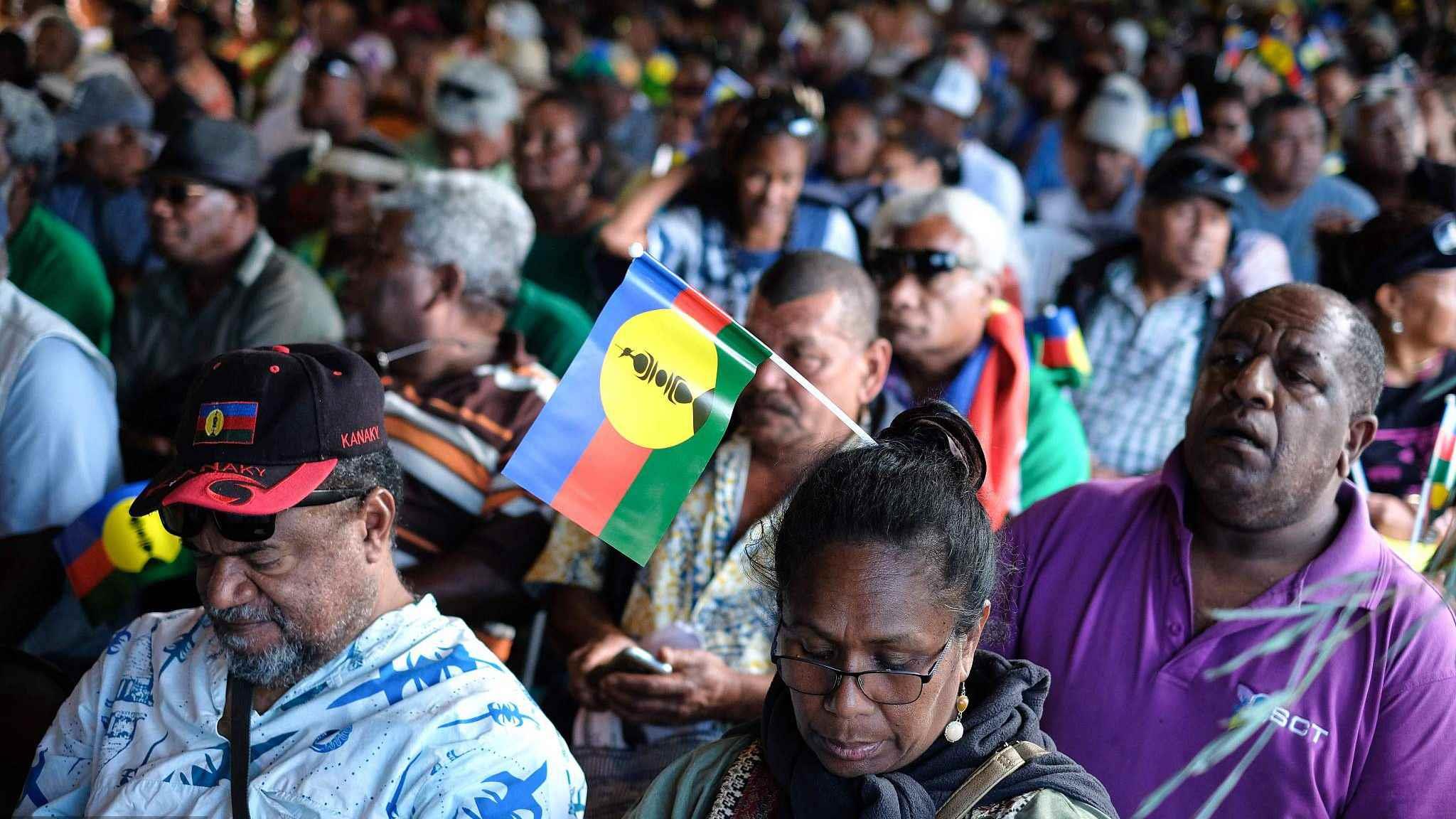NEW CALEDONIA, Nov. 4 (CGTN) -- Islanders on the French Pacific territory of New Caledonia rejected independence on Sunday in a referendum, but the results showed weaker than expected support for Paris in the resource-rich and strategic outpost.
Some 18,000 kilometers (11,000 miles) from the French mainland, New Caledonia is home to a quarter of the world's known supplies of nickel, a vital electronics component.
On the final count, 56.4 percent of people rejected the proposition that New Caledonia becomes independent. Turnout was high at 80.63 percent.
President Emmanuel Macron expressed his "immense pride that we have taken this historic step together" in an address to the nation, adding it was "a sign of confidence in the French Republic, in its future and its values."
Polls beforehand had forecast an emphatic 63-75 percent of New Caledonians would vote "no" when asked if the archipelago should "attain full sovereignty and become independent."
Under a 1998 deal called the Noumea Accord to devolve powers to the territory, two further votes on independence can be held by 2022, right independence leaders look set to invoke.
"We're a short step away from victory, and there are still two votes to come," Alosio Sako, head of the separatist movement FLNKS, said after the results were announced.
Macron had largely stayed clear of the campaign in New Caledonia, but during a visit to Noumea in May he declared "France would be less beautiful" without the territory.
As well as being home to French troops and being a source of nickel, the territory gives France a large, exclusive economic zone in the Pacific and rich fishing resources.
